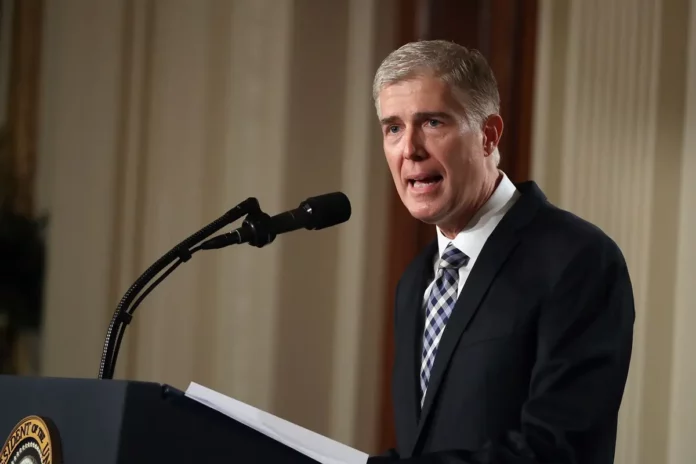The Supreme Court has been making headlines for all the wrong reasons lately. With Justice Clarence Thomas and his insurrectionist wife, Ginni, drowning in scandals, and Brett Kavanaugh’s mysterious finances sparking curiosity, it seems like it’s time to add Justice Neil Gorsuch to the list. Gorsuch failed to disclose a property transaction with the head of a law firm, whose firm has had numerous cases before the court.
Justice Gorsuch sought a buyer for a 40-acre tract of property he co-owned in rural Granby, Colorado, for almost two years, starting in 2015. Nine days after he was confirmed by the Senate for a lifetime appointment on the Supreme Court, Gorsuch found a buyer: The chief executive of Greenberg Traurig, one of the nation’s biggest law firms with extensive practice before the high court.
On April 16, 2017, Greenberg’s Brian Duffy signed a contract for the 3,000-square-foot log home on the Colorado River, situated in the mountains northwest of Denver. A month later, Duffy and his wife closed the deal, paying $1.825 million. Gorsuch, who held a 20 percent stake, reported making between $250,001 and $500,000 from the sale on his federal disclosure forms. However, he did not disclose the identity of the purchaser, leaving that box blank.
The story doesn’t end there. Since the property transaction, Greenberg Traurig has been involved in at least 22 cases before or presented to the Supreme Court. In the 12 cases where Gorsuch’s opinion is recorded, he sided with Greenberg Traurig’s clients eight times and against them four times. Furthermore, a Denver-based lawyer for Greenberg represented North Dakota in one of the more highly publicized rulings in recent years, a multistate suit that reversed former President Barack Obama’s plan to combat climate change through the Clean Air Act.
This begs the question: Why do only conservative Supreme Court Justices seem to be caught up in a myriad of scandals? As the list of ethically questionable situations continues to grow, it becomes increasingly difficult for the public to trust the integrity of the highest court in the land.



